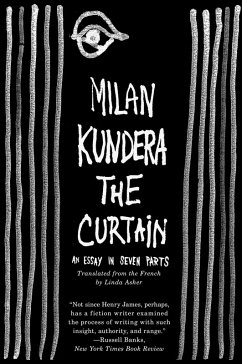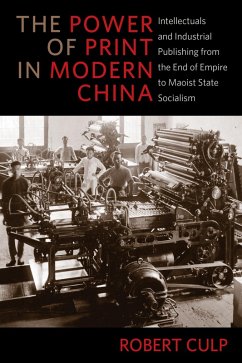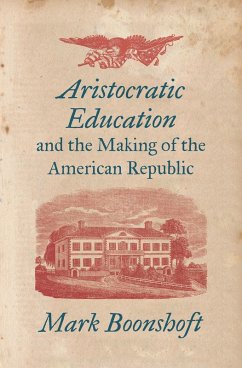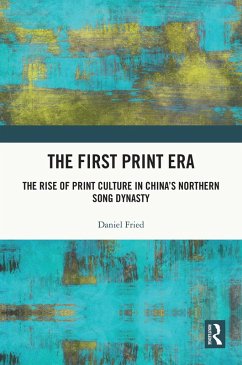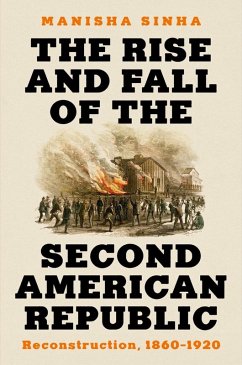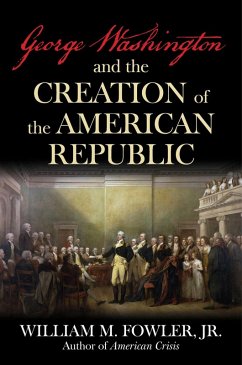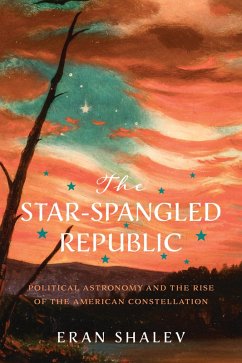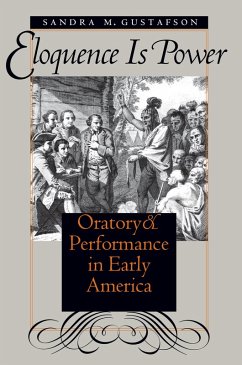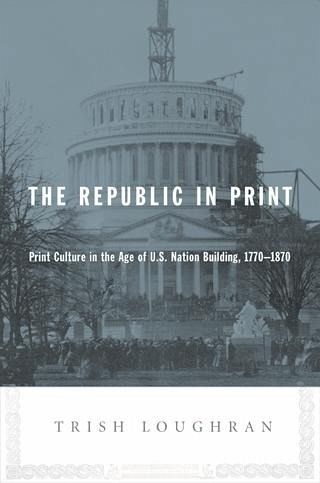
The Republic in Print (eBook, ePUB)
Print Culture in the Age of U.S. Nation Building, 1770-1870

PAYBACK Punkte
13 °P sammeln!
"In the beginning, all the world was America."¿John LockeIn the beginning, everything was America, but where did America begin? In many narratives of American nationalism (both popular and academic), the United States begins in print-with the production, dissemination, and consumption of major printed texts like Common Sense , the Declaration of Independence, newspaper debates over ratification, and the Constitution itself. In these narratives, print plays a central role in the emergence of American nationalism, as Americans become Americans through acts of reading that connect them to other ...
"In the beginning, all the world was America."¿John Locke
In the beginning, everything was America, but where did America begin? In many narratives of American nationalism (both popular and academic), the United States begins in print-with the production, dissemination, and consumption of major printed texts like Common Sense , the Declaration of Independence, newspaper debates over ratification, and the Constitution itself. In these narratives, print plays a central role in the emergence of American nationalism, as Americans become Americans through acts of reading that connect them to other like-minded nationals.
In The Republic in Print, however, Trish Loughran overturns this master narrative of American origins and offers a radically new history of the early republic and its antebellum aftermath. Combining a materialist history of American nation building with an intellectual history of American federalism, Loughran challenges the idea that print culture created a sense of national connection among different parts of the early American union and instead reveals the early republic as a series of local and regional reading publics with distinct political and geographical identities.
Focusing on the years between 1770 and 1870, Loughran develops two richly detailed and provocative arguments. First, she suggests that it was the relative lack of a national infrastructure (rather than the existence of a tightly connected print network) that actually enabled the nation to be imagined in 1776 and ratification to be secured in 1787-88. She then describes how the increasingly connected book market of the 1830s, 1840s, and 1850s unexpectedly exposed cracks in the evolving nation, especially in regards to slavery, exacerbating regional differences in ways that ultimately contributed to secession and civil war.
Drawing on a range of literary, historical, and archival materials-from essays, pamphlets, novels, and plays, to engravings, paintings, statues, laws, and maps¿ The Republic in Print provides a refreshingly original cultural history of the American nation-state over the course of its first century.
In the beginning, everything was America, but where did America begin? In many narratives of American nationalism (both popular and academic), the United States begins in print-with the production, dissemination, and consumption of major printed texts like Common Sense , the Declaration of Independence, newspaper debates over ratification, and the Constitution itself. In these narratives, print plays a central role in the emergence of American nationalism, as Americans become Americans through acts of reading that connect them to other like-minded nationals.
In The Republic in Print, however, Trish Loughran overturns this master narrative of American origins and offers a radically new history of the early republic and its antebellum aftermath. Combining a materialist history of American nation building with an intellectual history of American federalism, Loughran challenges the idea that print culture created a sense of national connection among different parts of the early American union and instead reveals the early republic as a series of local and regional reading publics with distinct political and geographical identities.
Focusing on the years between 1770 and 1870, Loughran develops two richly detailed and provocative arguments. First, she suggests that it was the relative lack of a national infrastructure (rather than the existence of a tightly connected print network) that actually enabled the nation to be imagined in 1776 and ratification to be secured in 1787-88. She then describes how the increasingly connected book market of the 1830s, 1840s, and 1850s unexpectedly exposed cracks in the evolving nation, especially in regards to slavery, exacerbating regional differences in ways that ultimately contributed to secession and civil war.
Drawing on a range of literary, historical, and archival materials-from essays, pamphlets, novels, and plays, to engravings, paintings, statues, laws, and maps¿ The Republic in Print provides a refreshingly original cultural history of the American nation-state over the course of its first century.
Dieser Download kann aus rechtlichen Gründen nur mit Rechnungsadresse in A, D ausgeliefert werden.




